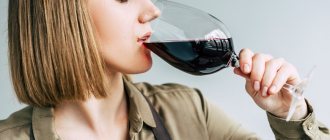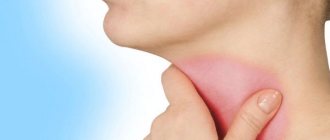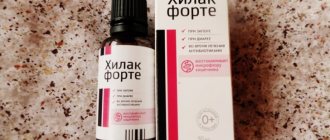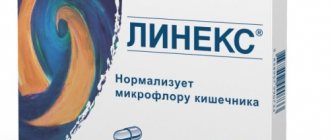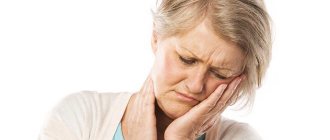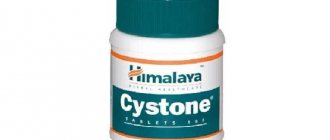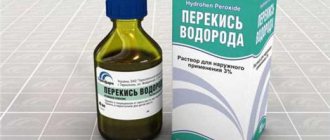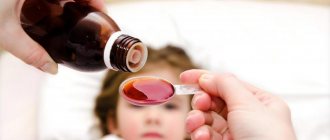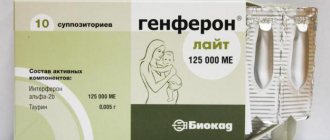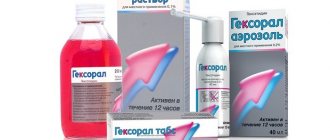Eleutherococcus belongs to the genus of perennial thorny shrubs of the Araliaceae family. Its other names are wild pepper, netronnik, prickly freeberry, devil's bush, Siberian ginseng. It grows wild in Japan, China, Korea and the Far East. The plant is unpretentious, shade-tolerant, tolerates cold well, and is not demanding on the soil, which allows it to be grown without much difficulty in gardens and orchards.
The bush has a straight vertical stem and a powerful root system, reaching thirty meters in length with a large number of branches. It grows up to 4 meters, the branches are covered with thin spines. It blooms from July to August and produces spherical fruits - black shiny drupes.
photo of a plant in its natural habitat
The plant has found wide use in medicine due to its pronounced tonic and adaptogenic properties. Eleutherococcus root is used for medicinal purposes. On its basis, medications are prepared - decoctions, infusions, powders, tablets, and other medicinal products. The alcohol tincture of the plant has the greatest healing effectiveness.
Eleutherococcus tincture is a herbal preparation made from the roots of the plant. It has a powerful stimulating and tonic effect on the body. Indicated for increased physical activity, low blood pressure, infection and weak immunity. Eleutherococcus, like any drug, has not only beneficial properties, but also has contraindications.
During treatment, the instructions for use and recommended doses must be strictly followed so as not to cause harm to the body.
Release form and composition
Eleutherococcus extract liquid is available in the form of a liquid extract for oral administration: dark brown in color, with a characteristic odor, slight opalescence is allowed, sediment may form during storage (in bottles of 25 ml, 50 ml or 100 ml, in a cardboard box 1 bottle ; 25 ml each, 40 or 54 bottles in a cardboard box; 50 ml or 100 ml each, 20 bottles in a cardboard box; 50 ml each, 40 bottles in a cardboard box; in glass bottles or dark-colored jars - 25 ml, 30 ml, 50 ml or 100 ml, 1 bottle in a cardboard box; 25 ml in dark glass bottles, 36, 49, 64 or 70 bottles in a cardboard box; 50 ml, 36, 49, 60 or 64 bottles in a cardboard box; 100 ml, in a cardboard box 16, 24 or 25 bottles; 30 ml or 50 ml in orange glass dropper bottles, 1 dropper bottle in a cardboard pack; each pack also contains instructions for the use of Eleutherococcus liquid extract; 25 each ml in dropper bottles, 70 dropper bottles in a cardboard box; for pharmacies and hospitals: in polyethylene canisters - 4.5 l, 5 l, 10 l, 11.5 l, 19 l, 20 l, 21.5 l, 26.5 l, 28 l or 31.5 l) .
1000 ml of liquid extract contains:
- active ingredient: rhizomes and roots of Eleutherococcus senticosus – 1000 g;
- auxiliary component: 40% ethanol (ethyl alcohol) (composition: 95% ethanol – 360 g, purified water – 640 g).
Pharmacodynamics and pharmacokinetics
A stable effect of Eleutherococcus preparations occurs after long-term use. The dietary supplement of wild pepper roots activates the body’s metabolism, the endocrine system, and promotes autonomic regulation. All forms of the drug have a tonic effect on the central nervous system. Increases:
- tone of the walls of blood vessels, internal hollow organs;
- secretion of glands of the digestive and endocrine systems;
- physical and mental performance;
- mental activity.
The above factors lead to an increase in a person’s overall vitality. At the same time, freeberry preparations do not cause overexcitation of the central nervous system. They are slightly capable of increasing blood pressure; under the influence of the medicine, the lumen of the blood vessels expands. This leads to normalization of blood flow. The drugs have adaptogenic effects:
- They increase specific and nonspecific immunity, which manifests itself in the body’s resistance to various types of infections.
- The tonic effect of dietary supplements from the roots of the hedgehog tree allows a person to adapt to aggressive environmental factors (unfavorable climatic conditions, weather).
Indications for use
- asthenic conditions of various etiologies;
- reduced performance, chronic fatigue syndrome - as a stimulant and tonic that increases mental and physical performance;
- psycho-emotional stress;
- vegetative-vascular dystonia, various forms of neuroses, other functional disorders of the nervous system;
- obesity;
- loss of appetite, anorexia;
- hypercholesterolemia;
- diabetes;
- arterial hypotension;
- recovery period after infectious and other serious diseases that deplete the body;
- rehabilitation after radio- and chemotherapy;
- male impotence (decreased libido and erectile function);
- prevention of infectious and viral diseases in immunodeficiencies caused by chronic pulmonary pathologies, occupational diseases caused by hazardous production.
Eleutherococcus tincture: application
The benefit of the tincture lies in its adaptogenic and tonic effects. Eleutherococcus increases the body's resistance and has a general strengthening effect thanks to essential oils, resins, glycosides and pectin substances.
In addition, tincture of Eleutherococcus improves metabolism, enhances hearing and visual acuity, has a beneficial effect on the hormonal background of women, increases blood pressure (which is good for hypotensive patients) and helps the body adapt to unfavorable environmental factors.
Contraindications
- arterial hypertension;
- heart rhythm disturbance;
- myocardial infarction;
- cerebrovascular pathology;
- increased excitability, insomnia;
- epilepsy, convulsive conditions;
- acute infectious diseases;
- chronic liver diseases;
- pregnancy period;
- breast-feeding;
- age up to 12 years;
- individual intolerance to the components of the drug.
Eleutherococcus extract should be taken with caution in case of traumatic brain injury, brain diseases, alcoholism, and in children over 12 years of age.
Research by scientists and opinions of experts
Numerous studies of the medicinal effect of the plant on the human body indicate that Eleutherococcus has a positive effect on brain activity. Scientists from the Far Eastern Academy of Sciences were the first to discover this property of the shrub. After taking drops or tablets, a person, regardless of age, improves concentration and performance.
The plant has a wound-healing and regenerating effect. These qualities of the bush are in great demand at such a young age, since children are most often susceptible to injury. But, despite the numerous positive properties of eleutherococcus, before using it, you should obtain consent from your pediatrician for such health measures.
During the course, it is important to follow all the specialist’s instructions:
- time of receipt;
- dosage;
- monitor the child's condition.
Such actions will help avoid side effects and reduce the risk of developing a negative reaction to the components of the product. If any discomfort occurs, you should immediately consult your doctor.
Eleutherococcus liquid extract, instructions for use: method and dosage
Eleutherococcus liquid extract is taken orally 0.5 hours before meals.
It is preferable to take the drug in the morning.
The contents of the bottle should be shaken before each use of the drug.
Recommended dosage:
- adults: 20–30 drops 2–3 times a day;
- children over 12 years of age: 1 drop per 1 year of age.
The duration of treatment is 25–30 days.
If necessary, you can continue taking it or resume the course after a 14-day break; it is recommended to first consult a specialist.
conclusions
After reading the article, you learned how useful Eleutherococcus is for the immune system and as an adaptogen. The indications for the use of this plant, a few contraindications and possible side effects are described. Many people are interested in whether Eleutherococcus is suitable for children, or whether drops or tincture can be taken by pregnant women. The article provides information about the research available today, which was conducted back in the USSR in the 1960-70s. Based on this data, you can decide whether to give this plant to your child or take it during pregnancy.
Scientists turned their attention to the Siberian plant with light brown roots when looking for an inexpensive replacement for ginseng. The specialists who described Eleutherococcus and studied its beneficial properties initially called it Siberian ginseng. Currently, it is recommended to abandon this name because Eleutherococcus contains other biologically active substances than those found in ginseng. Both plants have the maximum concentration of beneficial substances in the roots and rhizomes, from which tinctures and extract tablets are made. Eleutherococcus is more affordable than ginseng, but is less studied and probably less effective.
special instructions
Taking drops in the afternoon may cause insomnia.
In case of hypoglycemia, it is recommended to reduce the dose of the drug and take it after meals. If the measures taken are ineffective, the drug should be discontinued.
In the maximum single dose of the liquid extract (30 drops), the content of absolute ethyl alcohol is 0.43 g, in the maximum daily dose (90 drops) – 1.4 g.
Impact on the ability to drive vehicles and complex mechanisms
During the period of use of drops, care should be taken when driving vehicles, complex mechanisms, and performing other potentially dangerous activities that require increased attention and speed of psychomotor reactions.
Beneficial properties of Eleutherococcus
Eleutherococcus tincture and tablets are used for chronic fatigue, fatigue, and during the recovery period after serious illnesses. Preparations of this plant are prescribed if a person is facing overload and is preparing for it. Stimulating plant extracts increase resistance to heat, cold, physical activity, noise, toxic substances, bacterial and viral infections. For this reason, Eleutherococcus is called an adaptogen. In the USSR, it began to be used in 1966 as a stimulant drug, and in 1968 it was recommended to be prescribed to future cosmonauts before flights.
Eleutherococcus increases not only physical, but also psychological stability. This remedy improves concentration and reduces brain fatigue. People who take it improve their performance in sports competitions and in solving mental problems. In Soviet medical institutions, tincture of Eleutherococcus was prescribed to cancer patients to reduce the side effects of chemotherapy. In finished preparations, this remedy is often contained together with extracts of other plants - Rhodiola rosea, Schisandra chinensis, Leuzea safflower. The effectiveness of such combination agents has not been studied. You can only rely on the advertising statements of their manufacturers.
Experts who studied the beneficial properties of Eleutherococcus in the 1950s and 60s first called it Siberian ginseng. Because the root extract of this plant had a stimulating effect on people, similar to the effect of taking ginseng. However, Eleutherococcus preparations help less than ginseng. Currently, it is recommended to abandon the name “Siberian ginseng”. Because it creates confusion and exaggerates the effectiveness of Eleutherococcus. In the US, manufacturers of ginseng supplements have won legislation to prohibit the use of the name "Siberian ginseng" for preparations made from other plants.
Adaptation to overloads
In 1968, the results of a Soviet study on the effectiveness of taking Eleutherococcus by athletes were published. More than 1,500 athletes took the root extract of this plant. Among them were even participants in the Olympic Games. The study authors also identified a control group of athletes who were not prescribed a stimulant. People who took Eleutherococcus at night and before starting training generally improved their performance. At the same time, foreign studies in the 1990s showed that the effect of administering this plant to athletes is weak and unstable.
In the USSR, Eleutherococcus preparations were prescribed to sailors who were transporting cargo to tropical countries. These people had to work in conditions of extreme heat and humidity, and suffered psychological stress from being unable to leave the ship for many months. Eleutherococcus tincture and tablets improved the physical and psychological condition of sailors. Their sleep returned to normal. Episodes of depression and irritability occurred less frequently than in colleagues who took placebo. At least that's what articles in Soviet medical and popular science magazines claimed in the 1970s.
Improved brain function
Eleutherococcus tincture and tablets have a positive effect on brain function. This herbal remedy allows you to concentrate longer, recover faster from mental stress, and sharpen your vision and hearing. Its effectiveness is confirmed by studies from the 1970s and 80s with the participation of Soviet aircraft pilots, aviation engineers, railway drivers and specialists in other extreme professions. Taking stimulating drops improved their test results for attentiveness and reaction speed.
Future pilots were divided into two groups, equal in size and level of physical fitness. Some took eleutherococcus, while others took placebo. All pilots and cosmonauts are trained using a special simulator in which they quickly rotate in three planes. This rotation trains the vestibular apparatus, but causes dizziness and nausea. In people who took a placebo, nausea occurred after 7-12 minutes of using the exercise machine, and in those who took the real herbal extract, nausea occurred much later, after 15 minutes.
A study was conducted abroad on how taking Eleutherococcus affects the quality of life and health status of older people. 20 people with hypertension took part. Some of them had heart failure. The participants were divided into two equal groups. 10 patients took eleutherococcus root extract for 8 weeks, the rest took placebo. After 4 weeks, people taking the real stimulant reported an improved quality of life. But by the end of week 8, the differences between the groups had disappeared. Taking the stimulating plant extract had no effect on blood pressure indicators. The study authors concluded that Eleutherococcus is a safe remedy, but with low effectiveness.
Drug interactions
With simultaneous use of Eleutherococcus liquid extract:
- Central nervous system stimulants: may enhance their effect;
- neuroleptics, barbiturates, anxiolytics, antiepileptics and other drugs that have a depressant effect on the central nervous system: the extract antagonizes these drugs, as a result of which they weaken their properties;
- Digoxin: there is a risk of increasing the concentration of digoxin in the blood plasma;
- hypoglycemic agents, including insulin, anticoagulants: the effect may be enhanced.
How to use Eleutherococcus and products based on it, in what concentrations, analogues, differences
Preparations based on the roots of Eleutherococcus are used for auxiliary treatment of diseases.
This is far from a panacea. How to use, what dosing rules apply and how appropriate is treatment with herbal medicine.
Composition, what can be gleaned from it?
Structural components:
Glycosides - normalize myocardial contractility, stimulate the functioning of cardiac structures and systems. Hence, it is impossible to use the plant, as well as tinctures based on it, for ischemic heart lesions.
Flavanoids – activate metabolic processes. In case of overdose, the effect is excessively strong. Thus, against the background of diabetes mellitus, a drop in blood sugar levels is possible. In a healthy person, this scenario is more likely. The endocrine system requires a subtle approach.
Protein substances.
Lipids - restore adequate metabolism of fatty compounds in the body. Therefore, it is possible to use Eleutherococcus in dietology and endocrinology.
Therapeutic qualities
- Increasing vascular tone, which is important as part of the treatment of hypotension.
- Stimulation of immunity.
- Anti-inflammatory effect.
- Antiseptic effect. Eleutherococcus is suitable for both topical use and oral administration.
- Reduced blood sugar levels.
- Normalization of the body's metabolic processes.
- Nervous stimulation.
In what cases does it make sense to take it?
Approximate list of indications:
- Diabetes mellitus of the first and second types. Due to the content of lipids and bioflavonoids, it reduces blood sugar levels. But, you need to be careful. Glucose levels may drop to critical levels. Stick to the dosage strictly. 30 drops 1-2 times a day. You should start with a minimal amount (about ¼ teaspoon). The duration of the course is 25 days.
- Reduced blood pressure. Essential oils and lipids provide increased vascular tone and constriction. Blood pressure is rising. Dosage - 30 drops 1 time/day, based on an acute attack of hypotension. In case of an overdose, a sharp jump in the tonometer reading and a hypertensive crisis is possible.
- Stomatitis, gingivitis, inflammation of the mucous membranes of the oral cavity. As a medicinal rinse. Essential oils create anti-inflammatory and antiseptic effects. Approximately 50 drops once. If there is no effect - 2 times a day. Internal oral administration does not make sense.
- Infectious and inflammatory diseases. Strictly against the background of the subacute phase or closer to the time of recovery to prevent relapse. The point is to strengthen the immune system. The acute period is the basis for refusing to drink Eleutherococcus in the form of tincture. Intoxication of the body leads to increased activity of the sinus node; dangerous forms of arrhythmia may occur with the occurrence of pathological electrical impulses in the atria or ventricles. The result is fibrillation or extrasystole. Since the drug increases vascular tone, the coronary arteries narrow, and the heart does not receive enough nutrients. This may result in an attack of unstable angina or myocardial infarction. Take a third of a teaspoon 2 times a day for 20 days. With normal tolerance, the course can be extended to 30 days.
- Osteocondritis of the spine. Elimination of the inflammatory process in the body. The doctor decides how adequate such a measure is. Orthopedist or surgeon. Directions for use: 1 third of a teaspoon once a day.
- Bradycardia, non-dangerous forms of bradysystole. While taking the drops, the heart rate normalizes. But we can talk about the safety of such treatment only after completing diagnostic measures (ECG, ECHO, listening to heart sounds, measuring blood pressure at a minimum). Take 40 drops 2 times a day.
Use for oncology, infertility, impotence, and menstrual irregularities have no basis. The patient takes the medication, expects the effect, and the pathology progresses at this time.
The tincture is suitable for the complex treatment of pathologies of the endocrine system, diabetes mellitus, inflammatory and infectious processes, and some cardiac pathologies. Used in combination, not suitable for monotherapy. The appointment is carried out as an aid to the treatment course.
In what cases should it not be taken?
Use is unacceptable for the following somatic pathologies:
- Hypertension of any origin. Both essential and renovascular. High tonometer readings. The result is a hypertensive crisis or a hemorrhagic stroke. The outcome of both states is death.
- Allergic reaction . You can determine whether there is an individual intolerance or not by dropping the tincture on an area of the skin. If there is a reaction, the dermal layer will turn red and itching will begin. Polyvalent allergic conditions suggest intolerance initially.
- Pathologies of the central nervous system. Also injuries. Concussions, hematomas, recent stroke, stenosis of arteries of cerebral structures, tumors, epilepsy, organic psychoses associated with increased concentrations of dopamine, and other processes. The drug activates the nervous system, stimulates the nervous system, therefore its use is unacceptable for many diagnoses.
- Acute infectious-inflammatory pathology, especially with hyperthermia.
- Autoimmune pathologies. Rheumatism, systemic lupus erythematosus, Hashimoto's thyroiditis and others.
- History of myocardial infarction. Regardless of how long ago it was. A relapse of the condition is possible. Lethal this time.
- Vascular pathologies, such as atherosclerosis, stenosis of the aorta and its branches.
- Cardiac problems. Mitral valve stenosis, prolapse, regurgitation, insufficiency, ischemic disease. Also atrial fibrillation, coronary insufficiency, group extrasystole. There is a risk of cardiac arrest after taking the drug.
- Asthenia, exhaustion of the nervous system. Since the drug stimulates the central nervous system, it initiates excitation processes.
- It is not recommended to use it for mental illness. Even the most “harmless” ones, on the neurotic spectrum.
- Pregnancy, liver cirrhosis , alcoholism
Possible side effects
The list of side effects is impressive. Below is a list ranked by frequency:
- Headache
- Tachycardia (accelerated heart rate).
- Double vision, impaired vision.
- Dizziness.
- Dyspeptic phenomena. Often heartburn, belching, diarrhea, vomiting, flatulence, pain in the epigastric region.
- Edema due to impaired functioning of the kidneys and cardiac structures.
- Disorientation in space. Nervous abnormalities.
- A sharp decrease in blood sugar levels. This results in fainting and, in severe cases, coma.
- Allergic reaction to components.
- Respiratory depression such as shortness of breath or suffocation.
- Muscle weakness.
- Bleeding. Internal, external.
- Stroke, heart attack, cardiac arrest.
- Cardiogenic shock. An emergency with almost 100% mortality.
Methods of use
Within the framework of endocrine pathologies:
- Tincture (25 drops) and alcohol preparation of wormwood (40 drops 1 time/day). Both drugs enhance each other's effects. Eleutherococcus is taken 2 times, wormwood - 1.
- With severe hypotension. As part of the relief of an acute attack. Tincture of ginseng (25 drops) and eleutherococcus (40 drops). You can increase the dosage by 10 drops if therapy is ineffective. If there is no result, it is recommended to call an ambulance. The cardiovascular system can fail.
- During inflammatory processes in the phase of weakening manifestations. Eleutherococcus (20 drops) + chamomile decoction (prepared as tea) + infusion. horse chestnut (50 drops)..
- For prevention, to stimulate the immune system, Eleutherococcus, a decoction of chamomile, St. John's wort, and peppermint are used in equal proportions, in the form of an express decoction.
When used in its pure form, the effect is less active. The effect on the body occurs after 5-15 minutes. Activity causes possible emergencies in the short term. You need to carefully monitor your health.
Compatibility with other products
- Normalizers, tranquilizers. Eleutherococcus will negate the effect of psychotropic drugs; the opposite effect is possible with the development of anxiety, motor agitation, and suicidal attempts are not uncommon as a result of akathisia. The phenomenon on the part of the nervous system is long-lasting.
- Antidiabetic drugs. The effect will increase several times. The result is a drop in glucose levels, hypoglycemia and coma.
- Corticosteroids - prednisolone, dexamethasone, a sharp rise in blood pressure, hemorrhagic stroke, death or severe disability are possible.
- Analeptics have the opposite effect. Respiratory activity will increase, hyperventilation will occur, and cardiac activity will also increase.
- Neuroleptics - antipsychotic medications inhibit the production of dopamine. Incoming components reduce the therapeutic effect on the body to zero.
Comparison with analogues
- Ginseng - acts primarily on the cardiovascular system and cerebral structures. Not effective in controlling diabetes. At the same time, he is more active in his field. Side effects are less common.
- Schisandra is a kind of psychostimulant. Provides more active heart function, but does not have selectivity, since it is based not on glycosides, but on other groups of substances. The central nervous system is also stimulated. More often it provokes side effects from the described structures. Long-term use leads to asthenia and reverse effects.
- Aralia is a natural immunomodulator and cardiac stimulant. Normalizes myocardial function. Alkaloids and glycosides have a significant effect on the functioning of the heart. Hence the main area of use of medicines based on Aralia: bradycardia, hypotension. In other cases, the effect is minimal. Side effects are severe, including death if there are contraindications.
- Radiola is a nootropic of phytotherapeutic origin. Despite the composition being similar to Eleutherococcus, its main purpose is to stop oxidative processes in the brain, normalize metabolic processes in cerebral structures and the body (to a lesser extent), and regulate the nervous system.
Thus, there are no complete analogues. All of them are used in a limited number of cases.
Is it possible to take Eleutherococcus during pregnancy?
Eleutherococcus during pregnancy can be taken only in extreme cases and as prescribed by a doctor. In medicine, the rhizomes and leaves of Eleutherococcus are used.
The rhizome is rich in vitamins (A, groups B, C, D, E), eleutherosides, glycosides, essential and fatty resins, and alkaloids. The leaves are famous for their high content of beta-carotene, ascorbic and linoleic acids. These nutrients are necessary to maintain the functioning of the human body. You can take Eleutherococcus during pregnancy, but only with the permission of the doctor who determined the dosage and type of drug.
Women in the third trimester of pregnancy are not prescribed medications containing Eleutherococcus extract, as it can increase muscle tone, which can lead to premature birth.
Side effects
If the drug is used incorrectly and restrictions on use are ignored, Eleutherococcus can cause harm to the body. Thus, a course of therapy with a dietary supplement can result in the following side effects:
- allergic reaction;
- diarrhea;
- increased irritability;
- heightened feeling of anxiety;
- insomnia (if the appointment is made later than 5 pm).
If side effects occur, you should stop using the tablets and consult a doctor to adjust the prescribed treatment.
Drug analogues
There are no complete analogues of Eleutherococcus in tablets. However, if it is impossible to use the medicine, the doctor selects a herbal-based drug with similar properties. Analogues in action:
- Svyatogor is an elixir consisting of a whole collection of plant extracts;
- Aveol – based on oat grass;
- Alfalgin syrup;
- Apiphytol;
- Befungin with chaga extract;
- Wang-bi;
- Vitastim;
- Ginseng tincture;
- Golden root tincture;
- Leuzea based on Leuzea extract, etc.
Research by scientists and opinions of experts
The decrease in natural reserves of ginseng has prompted scientists to search for plants with similar properties.
Our compatriots, employees of the Far Eastern Academy of Sciences, were the first to discover the therapeutic potential of eleutherococcus in the middle of the last century.
Vitamins, minerals, pectins, gums, essential oils, polysaccharides, resins and substances with rare properties from the group of glycosides - eleutherosides with high biological activity were found in the rhizomes and roots, which resemble bizarre figures in shape.
Therefore, Eleutherococcus is not inferior in effect to ginseng: it tones, gives vigor to the body and spirit, and improves immunity.
Experiments have shown that taking Eleutherococcus for a month reduces the incidence of seasonal infections in children by 30% and prevents the development of complications (bronchitis, otitis, pneumonia). The chief physician of the Medical A. Karus believes that eleutherococcus in children's practice has advantages over ginseng: it works slowly and gently, gradually restores the body and retains its healing effect for a long time.
According to immunologist L. Chernyshova, Eleutherococcus preparations require a careful and necessarily professional approach, and no self-medication. At the age of up to 5 years, even herbal immunomodulatory agents can harm a child by “waking up the immune system,” which must “sleep” until a certain time.
Your own pharmacist
It’s easy to make your own tincture of Eleutherococcus.
To do this, just pour 200 grams of dry and chopped roots with one liter of ethyl alcohol or vodka. The product must infuse for at least fourteen days in a cool, dark place.
Use glass containers and remember to shake periodically to enhance the effect of extracting beneficial substances from the plant into the solution. Store the strained tincture with other drugs out of the reach of children, protected from direct sunlight and at a constant low temperature.
A decoction of Eleutherococcus for external use is prepared for the treatment of facial skin and problem hair, when the use of alcohol is contraindicated.
The simplest recipe for making a decoction:
Bring 50 grams of dried root, poured with a liter of cold water, to a boil, strain after an hour of infusion. The broth can be stored for no more than 24 hours in a cool, dark place.
Medicinal plant Eleutherococcus
Eleutherococcus is a thorny shrub. Has branching strong roots. The trunk of the bush can reach a height of 4 meters.
The Eleutherococcus plant can be found in Japan, Russia, Korea and China. It grows mainly in forests, in light areas, and also on mountain slopes. The shrub also has other names - “Siberian ginseng”, wild pepper.
The leaves and roots of the plant contain many valuable substances that are widely used in medicine. Preparations based on this plant have positive reviews from doctors and patients.
The most useful components of Eleutherococcus:
- Glycosides
- Polysaccharides
- Resins
- Vegetable fats
- Essential oils
The leaves of the plant are collected during the flowering period, at the end of summer. Root – a little later, in mid- and early autumn.
Use of Eleutherococcus in cosmetology
Eleutherococcus is usually included in tonics, which have the ability to accelerate skin regeneration, improve and rejuvenate the skin, and return the face to a healthy appearance.
The pleasant aroma of the essential oil produced from the roots of this plant is the main reason why perfumers use it in the preparation of perfumes and eau de toilette.
The extract of this medicinal plant is added in the manufacture of facial skin care cream. They are suitable for any type because they rejuvenate and restore the epidermis. Eleutherococcus makes facial skin more delicate and soft.
Many companies produce a series of various facial and hair care products containing Eleutherococcus. A very effective mask that smooths out wrinkles, which also includes free berry. There are also well-known cosmetic lines, which, in addition to Eleutherococcus, include other effective medicinal plants.
Shoots and foliage are used in the manufacture of various cosmetic products for hair and scalp care (rinses, balms). Moreover, many well-known cosmetology companies use the roots and foliage of this plant along with ginseng.
Eleutherococcus during pregnancy - reviews
Marina, 32 years old
I was prescribed Eleutherococcus during pregnancy because I had low blood pressure. After the course, I felt an improvement in my condition, the feeling of constant nausea disappeared, the dizziness went away, and the doctor noted that my blood pressure had normalized.
Christina, 29 years old
I was suffering from severe toxicosis, and I began to lose weight; a friend recommended tea with Eleutherococcus. I was very happy when I started waking up in the morning and could have breakfast without a lump in my throat. The weight became normal, the child is healthy.
For more information on how to increase blood pressure during pregnancy, watch the video:
How to choose and drink a drug for a pregnant woman
During the entire period of bearing a child, it is not recommended to use Eleutherococcus in the form of tincture or syrup. This type of preparation contains alcohol and auxiliary components that can negatively affect the baby’s health and cause allergic reactions, as well as lead to intestinal problems for the pregnant woman. During pregnancy, it is better to stick to tablets with dry extract of the plant. This is a safe way to get medicinal properties from eleutherococcus and not harm the condition of the fetus.
There is a way to use the plant in the form of tea:
- 1 tsp. root;
- a mug of boiling water;
- lemon.
This tea is infused for 15 minutes. Lemon improves the taste. The drink saves a pregnant woman from toxicosis.
It is recommended to drink tea with the plant in the morning. If you take it after lunch, you may have trouble sleeping.
In late pregnancy, eleutherococcus is not recommended and is not prescribed by doctors. The body does not need the medicinal properties of the plant, and it can worsen the woman’s condition: increased tone, insomnia and physical activity will negatively affect the upcoming birth and harm the child.
After the recommendations of the gynecologist, they begin to use Eleutherococcus in order to improve the condition of the body, relieve it from overwork and strengthen the immune system; women do not want to start using the plant because of the alcohol content in it. Excitement is explained by a negative effect on the condition of the fetus. The doctor may advise replacing eleutherococcus with analogues. This is coffee and chocolate, which will help tone the body and provide energy.
To get out of a tired state, drink strong coffee. But with low blood pressure and to get rid of dependence on the weather, physical exercises are suitable, which are prescribed by a specialist depending on the stage of pregnancy.
To bring your blood pressure back to normal, it is better to take a walk outside.
